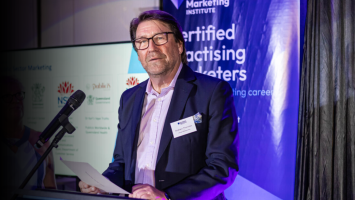2023 Board Diversity Index | Governance Institute of Australia

Media Release – Governance Institute of Australia | News & media (governanceinstitute.com.au)
Australia still lagging behind on ethnic and cultural diversity but signs point towards growing First Nations representation.
The latest snapshot of Australia’s boardroom diversity has found a small but positive improvement in the representation of First Nations’ people in the nation’s top companies but that broader cultural and ethnic diversity continues to stall.
The 2023 Board Diversity Index from Watermark Search International and the Governance Institute of Australia found Indigenous board representation in the top 300 ASX listed companies increased slightly from two to four directors holding six seats over the past year.
Governance Institute Fellow and Chair of the Aurora Education Foundation Charles Prouse says companies and recruiters need to create new pathways to improve representation on corporate boards.
‘How you find First Nations board members is not going to be the same as how you find the current board member. You’re looking in the wrong places,’ he said.
Charles Prouse said while hundreds of First Nations people hold board positions on Indigenous and non-Indigenous organisations and are navigating complex governance issues, they are often centred around the areas of education, health, economic opportunity and justice.
‘Must First Nations board members be business experts? Corporate boards must ask themselves the questions of what they are really looking for when they consider diversity and how to find it.’
Governance Institute Chair Pauline Vamos said it’s good governance for boards to consider all facets of diversity in their composition, to avoid ‘groupthink’ and deliver better decision-making processes for their stakeholders.
‘In the year where Australians will participate in a referendum on an Aboriginal and Torres Strait Islander Voice to Parliament, it is perhaps timely for companies to consider how they can boost Indigenous voices in the boardroom.’
David Evans, Managing Partner of Watermark Search International said the analysis shows while there is progress towards better representation in corporate Australia, it is happening at a glacial pace.
‘We regularly challenge chairs and boards to look beyond the initial tight criteria of just ‘experience on a similar board’ and really focus on what other people might add to the board’s conversation.’
The Watermark Search International/Governance Institute of Australia Board Diversity Index is the only comprehensive analysis of Australian boards that measures diversity across Australia’s top 300 ASX listed companies in five key areas: gender, cultural background, age, skills/experience, tenure and independence.
Other key findings from this year’s report include:
• Representation of women on boards has risen to 35% (up from 32% in 2022)
• There’s been a surge of women on smaller company boards (up 15% in 2022)
• 15 of ASX Top 300 boards have no female directors
• Only 10% of directors are from non-Anglo-Celtic backgrounds
• Average age of board directors and length of tenure remains steady
Mark Baxter, co-founder of the Australian Association of LGBTQ+ Board and Executive Inclusion (ALBEI) provides additional context to this year’s Index and says that self-disclosure from some minority groups is an issue.
‘ALBEI estimates between 10-15 people who identify as LGBTQ+ are currently on ASX200 boards, though we don’t have enough data to work with yet,’ he said.
‘Some of our members, particularly men, are reluctant to disclose, fearing career repercussions due to the sense that ‘traditionally masculine leadership’ is more desirable.’
Mark Baxter said Australia is behind other similar nations such as UK and US in collecting and reporting specific data, with growing calls for more people with disabilities and those from lower socio-economic backgrounds to help guide corporate boards on how to improve interactions with customers.
‘The lack of data does not mean a problem with representation for these groups does not exist. It probably means the problem has not been actively considered,’ he said.
For interview requests, please contact:
Antonette Collins, Senior Manager, Media and Communications 0477 949 604
Media Inquiries: media@governanceinstitute.com.au





